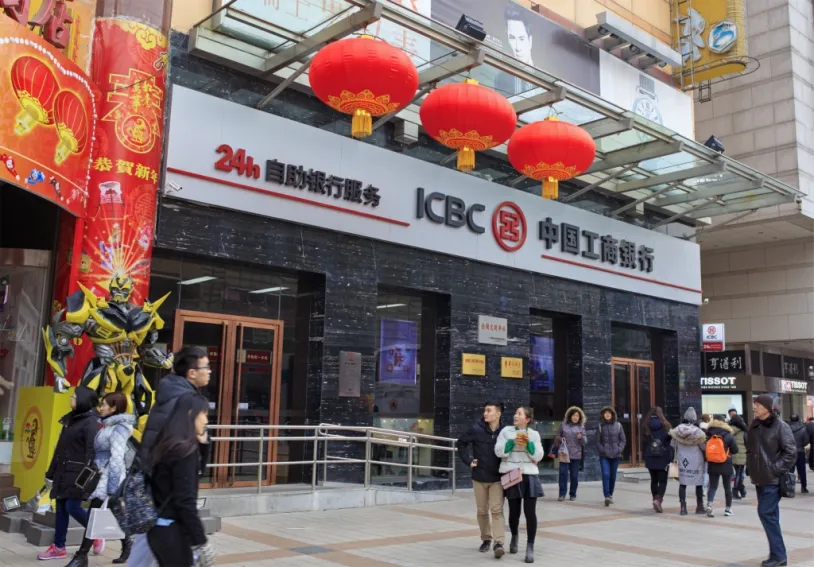
China's fintech ecosystem is scaling faster than the US and Europe
Outside of China, fintechs are only able to disrupt one vertical unlike Alipay or WeChat Pay.
Chinese banks are rejecting the resource-intensive development of in-house tech as they turn to big-ticket names in the scene like Alibaba and Tencent for their digitisation needs. In doing so, lenders hope to achieve the same level of scale that these fintech titans easily attained - one that has eclipsed that of the US and Europe.
Each of China’s big four state-owned banks - Industrial and Commercial Bank of China (ICBC), Bank of China (BOC), China Construction Bank (CCB) and Agricultural Bank of China (ABC) - has made it a point to tie up with at least one large technology ecosystem firm in 2017 in recognition of their formidable digital prowess, consulting firm McKinsey noted in a report.
Examples of their partnership include a joint fintech laboratory launched by Bank of China with Tencent; and an agreement between China Construction Bank, Alibaba, and Ant Financial to digitise customer banking experiences. ABC has also forged a partnership with Baidu and BOC with Tencent.
Also read: Asian banks rev up fintech partnerships to keep China's tech titans at bay
The success of China’s fintechs which grants them greater bargaining power over banks is largely because of their wide-ranging financial capabilities that are not limited to one vertical. Ant Financial offers business-to-consumer solutions with online payments, investments, digital banking and lending, the same with China.
“[L]arge ecosystem players will continue to use technology and digital channels to roll out their financial services offerings, either by going direct-to-consumer or, increasingly, by providing white-label fintech-as-a-service offerings to small and medium-sized financial institutions,” the report’s authors said.
After Alipay and WeChat Pay both launched, mobile phone payments in China have skyrocketed from less than $7.21t (RMB50t) to $46.22t (RMB320.4t) which represents a breakneck pace of growth at 7.5x in the first two years of operations alone, data from S&P Global Market Intelligence show.
"Chinese fintech ecosystems have scaled and innovated faster than their counterparts in the West," McKinsey observed.
Also read: Can China's payment titans crack the Hong Kong mobile wallet market?
On the other hand, McKinsey notes that most successful fintechs outside China are only able to disrupt one vertical like payments, lending or wealth management. In the US, for example, PayPal and Stripe focus mainly on online payments; Betterment and Wealthfront offer digital wealth management; and LendingClub and Affirm are alternative lenders.
However, banks and traditional financial companies are also investing heavily in their digital capabilities to fight back against non-bank players. S&P notes that even as the amount of nonbank third-party payments surged 480% from 2014-2017, mobile payments by banks correspondingly rose by 798% over the same period.
Tightening government regulation will also weed out noncompliant or less competitive fintechs after the government implemented a more stringent stance in payments, P2P lending and robo-advisory in the past year.
“With large technology companies knocking at their doors, incumbent financial institutions should proactively engage with fintech disruption, whether by building their own capabilities or by partnering or acquiring,” McKinsey added. “As the fintech markets mature, firms from the four categories of fintechs will compete directly in some cases, and join forces in others.”






![Lorem Ipsum [ABF 1]](https://cmg-qa.s3.ap-southeast-1.amazonaws.com/s3fs-public/styles/exclusive_featured_article/public/2025-03/a_hand_pointing_to_a_futuristic_technology_5b87c9d0e3_1.png.webp?itok=2w0y1WhS)


![Cross Domain [Manu + SBR + ABF + ABR + FMCG + HBR + ]](https://cmg-qa.s3.ap-southeast-1.amazonaws.com/s3fs-public/styles/exclusive_featured_article/public/2025-01/earth-3537401_1920_4.jpg.webp?itok=WaRpTJwE)








 Advertise
Advertise

